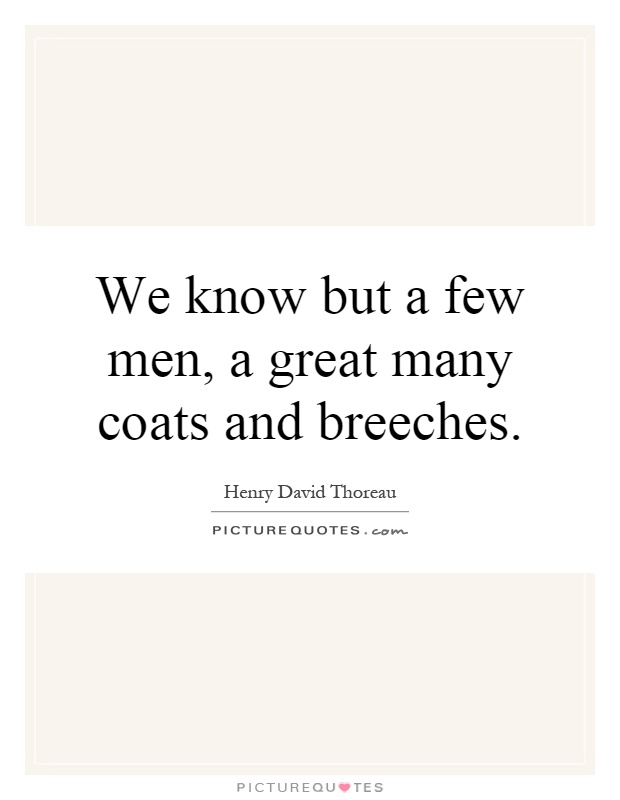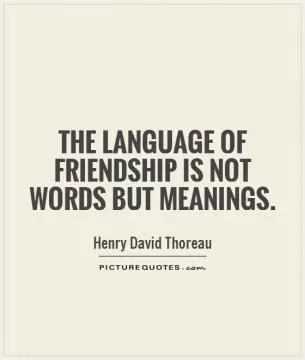We know but a few men, a great many coats and breeches

We know but a few men, a great many coats and breeches
Henry David Thoreau, a renowned American philosopher, naturalist, and writer, once famously said, "We know but a few men, a great many coats and breeches." This statement reflects Thoreau's belief in the superficiality of society and the emphasis placed on material possessions rather than on the true essence of a person.Thoreau was a firm believer in living a simple and deliberate life, free from the constraints of societal norms and expectations. He valued individualism and self-reliance, and often criticized the materialistic nature of society. In his book "Walden," Thoreau writes about his experience living in a small cabin in the woods, where he sought to live a life of simplicity and self-sufficiency. He believed that by stripping away the excesses of modern life, one could truly connect with nature and find inner peace and fulfillment.
Thoreau's statement about knowing only a few men but many coats and breeches speaks to the idea that people are often judged based on their outward appearance rather than their true character. In a society that places a high value on material possessions and status symbols, it can be easy to overlook the qualities that truly define a person. Thoreau believed that true worth lies in one's values, beliefs, and actions, rather than in the clothes they wear or the possessions they own.
Thoreau's words serve as a reminder to look beyond the surface and to seek out the deeper truths and meanings in life. By focusing on what truly matters – our relationships, our values, and our connection to the natural world – we can find greater fulfillment and meaning in our lives. Thoreau's philosophy of simplicity and self-reliance continues to resonate with people today, reminding us to live authentically and to prioritize what is truly important in life.












 Friendship Quotes
Friendship Quotes Love Quotes
Love Quotes Life Quotes
Life Quotes Funny Quotes
Funny Quotes Motivational Quotes
Motivational Quotes Inspirational Quotes
Inspirational Quotes